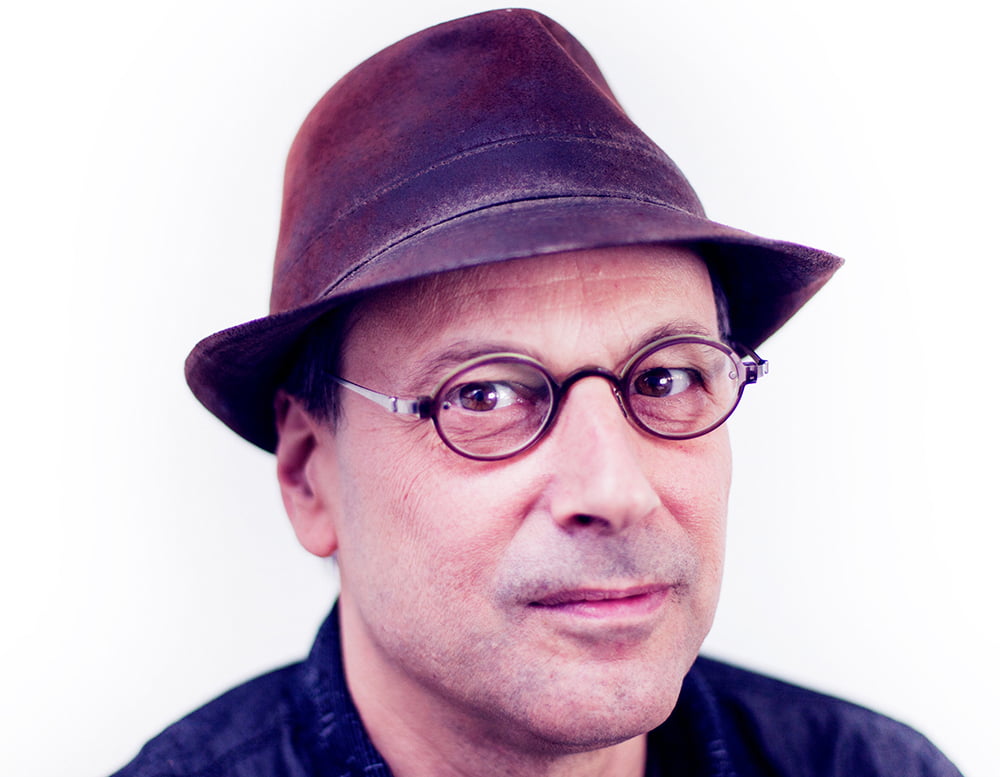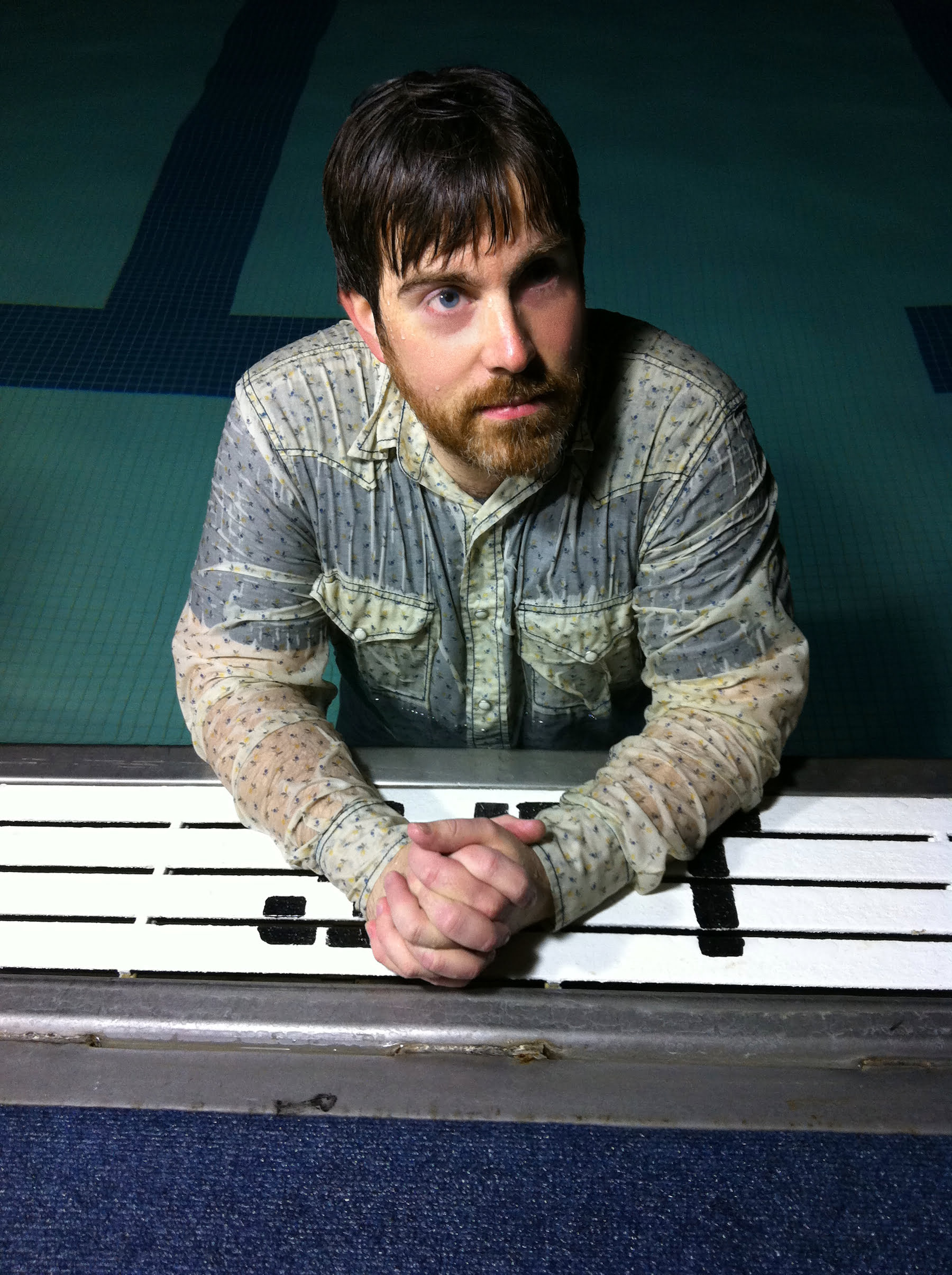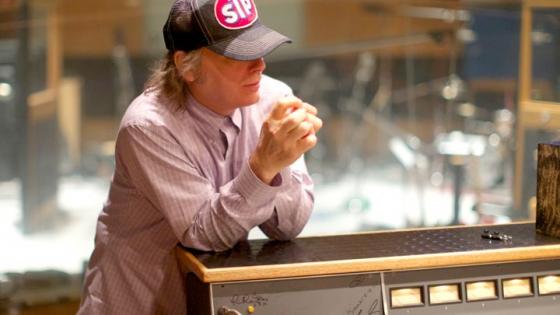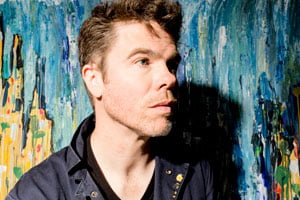A persistent, young Bob Boilen showed up to the National Public Radio offices every day for a few weeks in 1988 until he was hired on All Things Considered. With his foot in the public radio door, he began to actualize a vision for sharing music in the digital age and, thus, NPR Music was born. Boilen created the Tiny Desk Concerts, started and hosts NPR’s All Songs Considered, and is a musician himself, playing synth in his current band Danger Painters.
Earlier this year, he released his first book, Your Song Changed My Life, in which he tells an oral history of modern music through interviewing artists about the song that altered their career and, ultimately, steered them into musicianship during their formative years. As Boilen puts it, “My job as a writer is to sort of figure out what it is that connected their song choice to their current music. Like, they could tell me they loved it, and they could tell me why they loved it, but what I tried to do in the book is figure out how that connects to the music they now make.”
From Lucinda Williams to Trey Anastasio to Chris Thile, Boilen interviewed artists about their musical inspirations, connecting the dots to their current musical works as he wrote. The book points to an interconnected global music scene, the weight of familial influences, and the undercurrent of poignant songwriting and composition. It also highlights to a few chance meetings with music — like when a box of CDs literally fell off the back of a truck in front of St. Vincent’s Annie Clark’s house, and what those meetings with fate meant for the artist.
How did you choose the lineup of artists in your book, and did you being a musician yourself influence the artists you chose?
Everybody in the book I madly cared about, except for one person. I didn’t feel like spending my time on people I didn’t really love, and that’s true with just about everything I do. When I pick songs on my show, I rarely play songs I don’t like, so I started with people I really liked. And then it was really about availability. Like Jimmy Page happened to be touring — someone I’d always dreamed of talking with — and it just so happened he had a book coming out, a really beautiful photography book. Also Physical Graffiti had just been reissued. As he would say, “The mother of all double albums.” And he’s right. He was very fun to talk to. The music I love and the music I make are all one big ball of the same thing. I look for music with adventure, music that challenges … at least, challenges me.
In terms of Americana music and bluegrass music, it’s not my forté, but I always find things in the genre that I love. Pokey LaFarge’s dedication to that form and that sound is so real and honest. I don’t know anyone like Valerie June. Her voice is incredible and her songwriting is so good, and, as I hint in the book, I think it’s just beginning. The song that changed her life was “Imagine” by John Lennon, which I didn’t really ever imagine would be the case. She aspires to writing something with a deeper meaning, and a bigger reach, and I imagine she’ll do it.
She stops you in your tracks. Is there anyone you didn’t interview that you really wanted to interview?
Let me tell you about the one artist I interviewed who I didn’t really care for instead, and then we’ll do that. Trey Anastasio, of Phish, was the one artist in the book who I didn’t come to the table loving his music, because I don’t. It’s not that I dislike his music, but I’ve just never fallen for it. What I appreciate about him is, when an artist connects with fans, and fans connect with an artist, and there’s this back-and-forth that happens, that’s this little community that just pops up and disappears, and Phish does that almost better than anyone. I’ve really admired it, and I really wanted to explore it, and that conversation was probably one of my very favorites — if not my favorite. It was so surprising.
The book goes through a lot of artists who pick songs and you’ll say, “Oh, I love Josh Ritter. Of course he picked Bob Dylan,” and it goes on like that. But then you get these monster surprises, like Trey, who picked Leonard Bernstein’s piece from West Side Story "Somewhere," and then goes through this reasoning as to what it means to him.
You don’t really think of Phish and Leonard Bernstein, and that was the fun of writing the book. For him, it was just really about understanding music and music theory. That made him a great improviser, and Bernstein helped him understand how music works, and why certain tensions work and certain chords work, and so he tried to understand the theory of music. Once he did, he became really fluent at it, so he could be a great improviser. Chris Thile was not unlike that, either, who I madly love. He came to Bach — this Goldberg variation — but that makes a little more sense, because you hear that in the Punch Brothers.
Through hearing the surprises — and the ones you thought made sense — did it say anything to you about the natural progression of music, or even the global implications, of an Aussie like Courtney Barnett choosing Chicago’s Wilco? Did you come to any realizations or conclusions about the connections you saw?
It made me think a lot, because a lot of the people in the book lean a little bit older, so they grew up in households where there were physical music collections, be it vinyl or CD. But then you get to Ásgeir, who’s very young. There are CDs still, but I start to think about what is next. What does it mean to grow up in a household where everything is digital and there’s nothing to hold onto? How do you, as a parent, pass on your collection? I don’t judge it, but I grew up buying vinyl because that’s all there was. It makes me wonder how that experience becomes as impactful when there's nothing physical. There’s something about the passing on of the experience that feels like the physical means so much. So, Josh Ritter going through and finding records in his parent’s record collection, things like that, made me wonder. I don’t know what the future will be like.
Playlists?
But people are not going to pass on their Spotify playlists. I mean, there won’t be a Spotify! You can almost bet on it. It’s just the nature of the changing world. It really moves so fast.
I was a CD kid, but now I’m a Spotify kid.
Do you like it?
I love Spotify — specifically collaborative playlists. I think they are the coolest thing out there because you can see who contributed what songs. But, like you said, it’s hard to archive a playlist because it’s not physical.
If they unsubscribe or stop paying their subscription, what happens to their participation in the list?
It’s still public, but you can’t control the order. And you have to listen to the horrendous ads. Has the process of you connecting to music in the digital world changed, specifically with singles versus albums? Has that changed for you, as things have migrated to digital?
The thing that I miss most is the artwork. My favorite album this year is probably the Car Seat Headrest record, and I can barely describe the front cover of that record. That’s crazy. I know that you can judge an album by its cover. I’ve done it all my life, and so that process is gone. I no longer can just look through 60 things that I get in a morning, and say, "Oh, these four things …"
Do you think that democratizes the process at all?
No, because you can tell an album by its cover. The decision of the artwork is often made by the artist, so it conveys an aesthetic. It just really was a part of what that album was at that moment in time for an artist. These days, I mostly deal with downloads. I do like listening to music, so to speak, blindfolded. During the day, I’ll listen to a bunch of stuff that even sounds remotely interesting. I’ll rip, and then put it on a playlist. That’s a democratization process that I like a lot.
With All Songs Considered, I try to pick music people will latch onto the first time they hear it, because the odds are they aren’t going to listen to my show twice, so I try to pick songs that work the first time around, right off the bat. That democratized playlist shuffle is helpful there.
You have introduced me to many of my favorite bands, and I’ve never really thought about it like that; I’m specifically thinking of "Coffee" by Sylvan Esso.
Right?!
How could you not love that song? And now I have stalked that band all over this country, but I never really thought of you trying to pick the most available one for the show.
It came to me a couple of years into doing the show … that no one’s going to listen to the show twice.
When I first moved to Nashville, everyone told me not to go to shows every night. They told me, “Pace yourself, or you’ll get jaded by the music because it’s all around.” And I went to a lot of shows and, subsequently, went through a jaded period. Have you ever experienced that?
I find I get overwhelmed. When I was directing All Things Considered in the late '90s, I’d get lots and lots of handmade CDs, with their handwriting on the record, and it really made me connect with the fact that this is somebody’s life and dream. I try to hold onto that and never forget that. I mean, sure, I go to shows where I think, “You’ve got to be kidding me. I cannot imagine how you’ll make it." I certainly don’t care for it, but I also know that getting up on a stage is a brave act. Putting yourself in front of people and singing or playing your heart out is a meaningful act. We’re all humans looking for our place in life. If I keep that grounded thought, it really helps me. But, it doesn’t mean that I’m going to love and embrace all that I hear.
And, if you don’t like it, someone else might. I heard your interview with John Congleton where he talked about, when he hears certain music he doesn’t like, he believes it’s his problem or fault.
Yeah, that’s a really brilliant way to look at music, right?
I know, I thought, “Man, what a genius this dude is.” Do you ever have that issue?
I have huge blind spots in my taste.
We all do.
I’m not a fan of hip hop. I’m not a fan of beat-based music, so that eliminates a lot of music. What I’m careful about saying is, it’s not that it’s not good music — it’s amazing music — it doesn’t speak to me, and that’s okay. I think that what I’ve learned in writing this book is that there are some times in our lives — usually in those hormonal days — when you connect with a kind of music, although you may continue to love all different types of music as you grow up. Much of the Boomer Generation, like myself, thinks that Neil Young and the Beatles and all those other bands from the '60s and '70s are it and that no one's ever done music that good. Well, that’s crazy talk.
Thank you.
But, that said, ingrained in me is the love of a song that has a structure, because I fell in love with that in my hormonal years. I think what we have to do is respect it all. Even as a teen, I would think, “Oh, that’s shitty music,” “That’s really stupid,” and it isn’t that. As Congleton says, it’s kinda your own fault and your own failings, but accept that you can try to fix it.
Did your parents have an influence on your musical taste?
Not in a good way. [Laughs] My mom liked the Barbra Streisands and show music of the world, and I really really really don't like that music. And my dad is a big band enthusiast, of which I didn’t come to until a bit later. I fell really hard for the music of the '20s and '30s. But I grew up in a time that was so fertile for rock music in the '60s and '70s, and it was unfolding so fast. Plus, our generation was a generation that was rebellious against our parents, which I don’t really see anymore — which is amazing, really. And that’s what rock 'n' roll was all about. That was the nature of the beast.
I have one off the wall question: I saw a video that you made in 1988 of the chairs of NPR.
Oh my gah.
Personally, I think the video should have more than 778 views on YouTube. How have the chairs changed at NPR?
[Laughs] Thank you. We have nice chairs now. The fact is, the chairs are wonderful now.
Photo credit: Maggie Starbard/NPR







